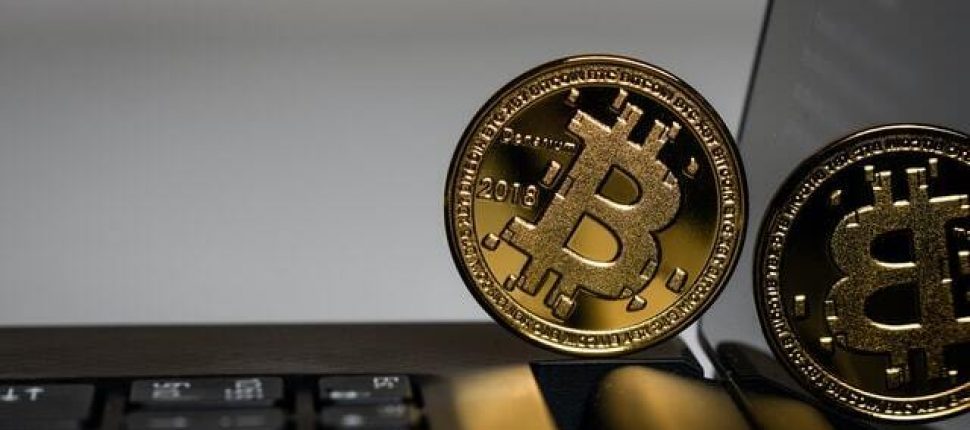- >Best Crypto Friendly Banks
- >Cash App Cryptocurrency Review: A Crypto Banking Revolution?
Cash App Overview
- One of the simplest ways to buy Bitcoin
- Owned by financial stalwart Square
- You can withdraw your Bitcoin to a personal wallet, unlike competing apps
- Really simple sign-up process
- Reliable and trustworthy
Pros and Cons
Pros
Jack Dorsey and Square are huge proponents of Bitcoin
Bitcoin is the only supported cryptocurrency, which offers simplicity
Users can also trade traditional stocks
Get a debit card for your Cash App balance
Receive direct deposits into account
Cons
Not a good option for users interested in altcoins
Bitcoin trading fees are a bit high
Currently only available in the United States and the United Kingdom
What is Cash App?
Cash App started as nothing more of a way for users to send payments between each other, but it has grown into much more than that over time. Cash App is now basically a full-service banking option, as users are able to get a debit card attached to their Cash App account, receive ACH transfers and direct deposits, and even invest in the traditional stock market (in addition to speculating on the bitcoin price). This app is a leader in the fintech realm, and it’s also clear they have serious ambitions with bitcoin, as Square, which is the company behind Cash App, has been supporting the underlying Bitcoin protocol in a wide variety of ways.
How Does Cash App’s Crypto Feature Work?
In the Cash App, there’s a separate section from the user’s base account where they can buy and sell stocks. Users are also able to trade bitcoin in this section. In fact, the ability to trade bitcoin was added before it was possible to trade traditional stocks.
Users are able to buy and sell bitcoin at the click of a button in this app, but the fees associated with this activity are dynamic and can be unknown until the point at which the user is making a trade.
One feature of Cash App’s bitcoin integration that is rather rare in terms of the large digital banks is that users are able to deposit and withdraw bitcoin directly from the underlying bitcoin network. This means users can purchase some bitcoin via the Cash App and then take full custody over their crypto assets by withdrawing that bitcoin to their own personal wallet software. Additionally, users can deposit those coins back onto Cash App whenever they’re ready to sell. That said, it should be noted that the bitcoin users hold in the Cash App application are held in a custodial manner, so users are only in control of their Bitcoin private keys if they move their bitcoin off of Cash App and into a non-custodial wallet.
Going forward, it seems clear that Cash App, and Square itself, have ambitions to integrate Bitcoin’s Lightning Network into their service offerings. This would allow Cash App users to attain lower transaction fees and instant settlement on their bitcoin transfers.
Which currencies can you buy and sell?
Cash App is a Bitcoin-only application when it comes to cryptocurrencies. And since it’s only available in the United States and the United Kingdom right now, the U.S. dollar and British pound are the only fiat currencies supported as well.
Country Restrictions
As mentioned above, Cash App is only available in the United States and the United Kingdom right now. The fintech platform undoubtedly has aspirations to become available in more countries. Judging from statements that come out of Square, it’s clear that bitcoin will be a key aspect of Cash App’s future international expansion.
Fees
When it comes to buying and selling bitcoin via Cash App, there are two potential fees to worry about. The first potential fee is a service fee that applies to all transactions of this type no matter what. Another fee is added depending on the current bitcoin price volatility. In total, these fees usually amount to around 1.75% of the value of the transaction, which is a bit high compared to many of the other available options on the market. However, there is a degree of convenience that goes along with being able to buy bitcoin directly in the Cash App.
Of course, Cash App is about much more than just buying and selling bitcoin, so here are some other fees to look out for on this platform:
- Stock trading fees – Cash App does not charge any fees of their own for buying and selling traditional stocks on their platform; however, there are likely a number of fees associated with these transactions charged by your local government that will be passed on to you. Cash App will display these fees to you before making a trade.
- Cash Card fees – The Cash Card is a debit card that you can tie to your Cash App balance. If you use this card to withdraw cash at an ATM, there will be a flat $2 fee charged by Cash App in addition to any fees charged by the ATM provider. It should be noted that users receiving direct deposits via Cash App are able to avoid some of these fees, or at least get them reimbursed.
Supported Crypto Wallets
Cash App supports withdrawals to any bitcoin wallet. Unlike the other major digital banks in the world, Cash App has gone further with their Bitcoin integration to allow users to take full custody of their crypto assets. While bitcoin held in the Cash App mobile application are held in Cash App’s custody, it’s rather nice that users have the option to take care of their own non-custodial storage needs.
In future, it’s likely that Cash App users will also be able to send bitcoin between Cash App and the greater Bitcoin network via the Lightning Network.
How to Sign Up for Cash App
If you want to create a Cash App account, then the first thing you’ll need to do is download the Cash App application from the app store associated with your device (Google Play or Apple App Store). Once you’ve downloaded the app, you should open it right away.
The initial thing you’ll need to do when you open Cash App for the first time is enter some of your basic information, namely your phone number and email address. Cash App will then send you a verification code to confirm your phone number or email address. You will enter this code on the next page of the sign-up process.
Once your account has been verified, you will be able to deposit funds to your account and start using some of the different features this digital bank has to offer. Of course, if you want to gain access to all of the features offered by Cash App, you’ll need to go through an additional verification process.
Cash App Frequently Asked Questions
Although Cash App is a regulated financial institution, it is not technically a bank because it does not make loans. Having said that, Cash App provides a wide variety of different financial services, and it would not be surprising if they eventually add the ability for users to take out loans or earn interest on savings accounts that are backed by loans on the platform.
The fees for trading bitcoin on Cash App can vary depending on current market conditions. There are two separate fees associated with bitcoin trades on the platform, and one of them is based on current volatility in the bitcoin price. Generally, the fees for buying or selling bitcoin via Cash App end up being around 1.75% or 2%.
Cash App’s Bitcoin integration acts more like a bitcoin bank than a bitcoin wallet. This is because bitcoin stored in the Cash App platform is held in a custodial manner, which means Cash App holds the actual private keys associated with each user’s bitcoin holdings. Having said that, you can also send bitcoin from a Cash App account to any Bitcoin address on the network. Similarly, you can send bitcoin from your personal wallet into your Cash App account.
There are two different ways you can turn bitcoin into cash via Cash App. The first would be to sell your bitcoin on the Cash App platform and then send the associated fiat currency resulting from that sale to your bank account. You could then get that cold, hard cash from your bank. Another option that could be much faster is to get a Cash Card, which can be tied to your Cash App balance. This would allow you to sell your bitcoin and immediately have access to the cash from that sale via the closest ATM.
There are a variety of scams that are commonly targeted towards Cash App users. These scams are also usually similar to scams that are frequently seen in the greater Bitcoin space. The main scams to look out for when using Cash App are the ones where some anonymous person on the internet is promising you something that sounds too good to be true. For example, if they’re saying they will send you back double the amount that you send them via Cash App in a short period of time, then it is almost assuredly a scam. Always be cautious of someone you don’t know who is trying to get you to send them some money for any reason.

